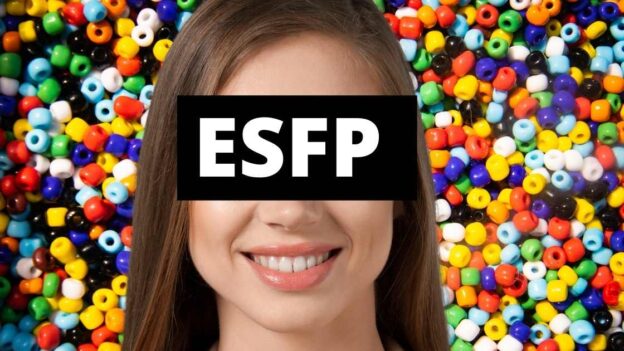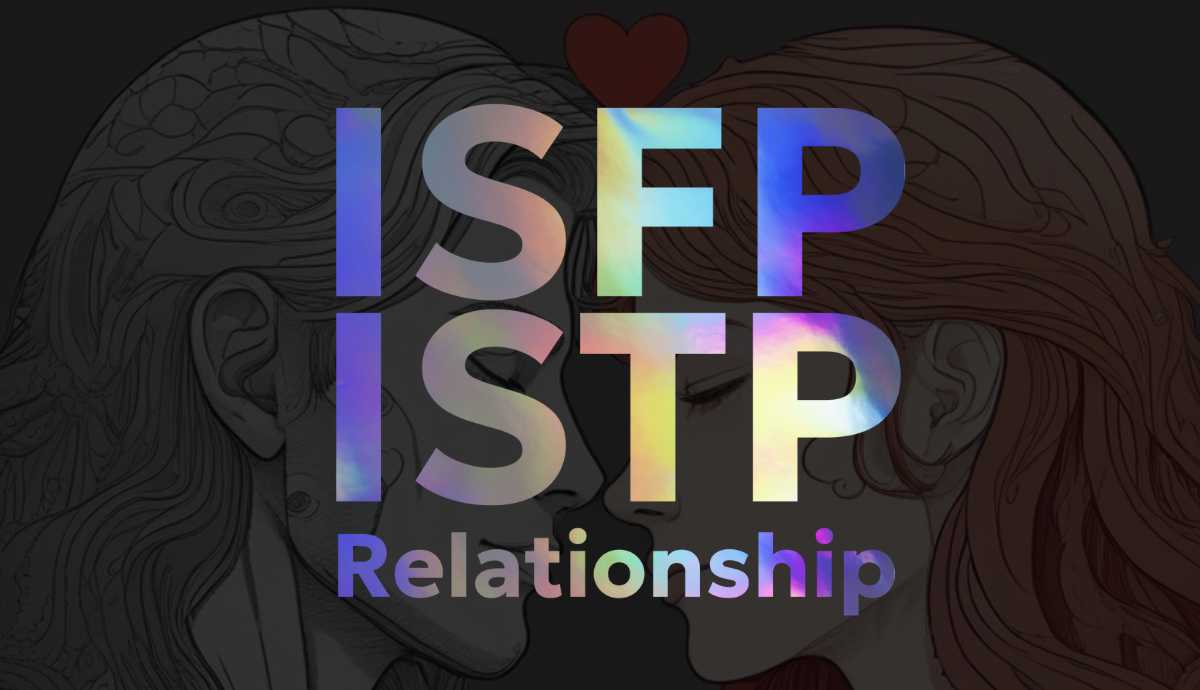The ESFP personality is described as the “tactical Performer” by MBTI analyst David Keirsey. Spontaneous, playful, enthusiastic and highly expressive, the ESFP male or female is an extrovert who is full of vitality and passion for life. They prize freedom and seek to live life according to their terms and values. For them, rules, commitments and schedules can often feel like an infringement on the more spontaneous manner in which they like to operate.
It is estimated that over 10% of the population is ESFP. These individuals tend to be the life of any occasion they are a part of. They love attention and when they have it, can put on quite a performance. These individuals are treasured for their sanguine and cheerful spirit which can often brighten the mood of everyone around them. Of course, not everyone may appreciate their ebullient and effusive qualities. Some people may just find them loud and annoying. They radiate warmth and heart and they show more interest in the arts and humanities than in impersonal technical systems and theories.
They however, are noted as often developing artful proficiency in their use of tools and equipment. Like other sensors, these types are very tactile and respond best to hands-on styles of learning. While ESFPs can thrive in many different occupations, those that are physical and craft-based are more likely to appeal to them than anything else.
As skillful operators, the ESFP will often work hard to master and perfect their use of techniques. They want to be seen as artistic, bold and flexible, and they aspire to make an impact in the world. These individuals trust their impulses and ability to improvise under pressure. Dealing with uncertainties and adapting to new situations is often more exciting than stressful.
Friendly and engaging, ESFP personalities like to be around people, and pleasing people is their pleasure. They don’t like being alone and can become restless and depressed when they are deprived of human interaction. Witty and humorous, this type can be very fun conversationalists and being in their company is usually a delight.
They love to tell stories and jokes and to playfully tease or show off for their companions. ESFPs prefer not to take life too seriously and display more of a YOLO attitude. They like to live fast, and live large if possible and tend to avoid thinking about things that can ruin their positive mood.
Surveys of the 16 MBTI types show ESFPs to have the lowest tolerance for anxiety of all. They will often try to ignore the things that cause them unhappiness and worry for as long as possible. Although they along with other sensors are “realists” by definition, ESFP’s focus on the bright side is a coping mechanism that can sometimes lead to a denial of reality and the postponement of dealing with problems that need to be addressed. They tend to be hip to what’s in fashion or popular at the moment but they themselves can often be something of a trendsetter.
Although their joy devivre is generally a good thing, it can also lead to a sometimes overindulgent and excessive pursuit of excitement and consumption of sensory pleasures. They can also be prone to reckless behaviors and mishaps due to a lack of forethought or planning. Although they are usually well-intentioned, this type can sometimes get into trouble for not thinking before they speak.
Delaying gratification is not their strong suit and this weakness can make them susceptible to various temptations that are not good for them. Because of their preoccupation with the “here and now”, they can often fail to consider the long term consequences of their present actions and decisions. Short term benefits tend to weigh more heavily for them than the long term.
On a more positive note, ESFPs are very generous and kind. They show a great tolerance and acceptance of others that is admirable. As much as they like to enjoy life’s pleasures, they also enjoy sharing them with others. They are known for giving and loving freely without expecting much of anything in return.
They show themselves to be very genuine and scarcely resist expressing what they truly feel. They find it difficult to conceal their feelings and so whether they are happy or hurt, it will likely show very clearly on their face and in their behavior. They divulge to their friends all their joys and pains as part of their desire to share and feel close to them.
When it comes to romance, ESFPs fall into love easily. People of this type are often very attractive thanks in part to the attention and concern they have for their physical appearance. By extension, they have a knack for beautifying their surroundings with tasteful furnishings and decor. This MBTI type can often get stereotyped as shallow, superficial, vapid and materialistic. This may be true for some, but for most ESFPs, it’s about really living and loving life and loving the people in their life because when life is over, its over.
They may sometimes struggle to be taken seriously. Their fun-loving disposition and hyperactive nature can make them seem less than reliable. Although routines and rituals can be such a drag for them, ESFPs have the capacity to fulfill obligations and perform responsibly when needed to.
Like other perceiving types, they tend to start more things than they finish. They like to have a lot of irons in the fire even though they can often get side tracked by welcome distractions. ESFPs have a penchant for pulling off small miracles at the last minute and making the most of what they have to work with. Although this can cause a lot of consternation and stress for other people involved, the conclusion is usually a happy ending.
ESFP Strengths:
- Energetic and Enthusiastic: ESFPs bring energy and enthusiasm to social situations, making them lively and engaging.
- Adventurous: They are naturally inclined to seek out new and thrilling experiences, embracing challenges.
- Spontaneous: ESFPs are flexible and enjoy going with the flow, adapting easily to changing circumstances.
- People-Oriented: They are typically sociable, enjoy connecting with others, and often have a wide circle of friends.
- Charming: ESFPs often possess a charismatic and charming demeanor that draws people toward them.
- Optimistic: They have a positive outlook on life, focusing on possibilities and enjoying the present moment.
- Artistic and Creative: ESFPs often have a strong artistic side, expressing themselves through various forms of art.
- Practical Problem-Solvers: They approach problems with a practical mindset, finding creative solutions.
- Empathetic: ESFPs are attuned to the emotions of others, making them compassionate and supportive.
- Good at Improvisation: They excel in spontaneous situations and are adept at thinking on their feet.
ESFP Weaknesses:
- Impulsivity: ESFPs may act on their impulses without fully considering the consequences, leading to risky behavior.
- Difficulty with Long-Term Planning: They may focus on immediate gratification and struggle with long-term planning.
- Sensitivity to Criticism: ESFPs can be sensitive to criticism and may take it personally, affecting their self-esteem.
- Tendency to Avoid Conflict: They may avoid confrontations and conflicts to maintain harmony.
- Risk of Burnout: Their high-energy lifestyle may lead to burnout if they don’t take breaks to recharge.
- Difficulty with Routine: ESFPs may become bored or frustrated with repetitive tasks and routines.
- Impatience: They may become frustrated with delays and seek instant results.
- Reluctance to Discuss Deep Issues: ESFPs may avoid discussing deep or complex issues, preferring lighter conversations.
- Easily Distracted: They may struggle with maintaining focus on tasks, especially if they lack interest.
- Overemphasis on Pleasure: ESFPs may prioritize pleasure and enjoyment over responsibilities.
Famous ESFP People:
- Elvis Presley – Singer and Actor
- Marilyn Monroe – Actress and Model
- Jamie Foxx – Actor and Musician
- Justin Bieber – Singer
- Cameron Diaz – Actress and Producer
- Hugh Hefner – Founder of Playboy
- Jennifer Lawrence – Actress
- Harry Styles – Singer and Actor
- Serena Williams – Professional Tennis Player
- Will Smith – Actor and Producer
Other MBTI Types:
- INTP Personality Type
- INTJ Personality Type
- ENTP Personality Type
- ENTJ Personality Type
- INFP Personality Type
- INFJ Personality Type
- ENFP Personality Type
- ENFJ Personality Type
- ISTJ Personality Type
- ISFJ Personality Type
- ESTJ Personality Type
- ESFJ Personality Type
- ISFP Personality Type
- ISTP Personality Type
- ESTP Personality Type
- ESFP Personality Type
related posts:
Want to know your astrology placements? You can generate your astrology chart here with our free birth chart generator tool.
- ESFP Weaknesses; 7 Struggles of Being ESFP
- 35 signs you are an ESFP Personality
- 12 Shades of ESFP: MBTI & the Zodiac
- ESFP Shadow: The Dark Side of the ESFP
- ESTP and ESFP in love: 6 Dynamics of Their Relationship - September 4, 2024
- ISFP and ISTP in love: 5 Dynamics of their Relationship. - August 28, 2024
- ISFJ and ISTJ in love: 5 Essential Dynamics of their Relationship - February 24, 2024






Angelina Jolie is ESFP, not ESTP. She uses Fi. No Fe.